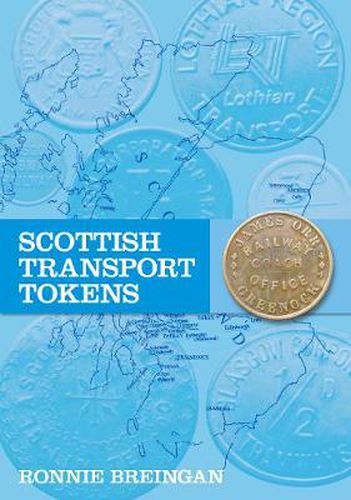Readings Newsletter
Become a Readings Member to make your shopping experience even easier.
Sign in or sign up for free!
You’re not far away from qualifying for FREE standard shipping within Australia
You’ve qualified for FREE standard shipping within Australia
The cart is loading…






Most transport tokens in Scotland were introduced in the middle of the nineteenth century, but until recent years they did not attract many collectors. The collecting and study of tokens has now very much become a branch of numismatics. The early tokens were usually struck in brass, copper or bronze, but as we moved into the twentieth century celluloid ones were introduced. From celluloid, various forms of plastic and fibre have been used as well as various metals, and this has continued right up to the present day. Tokens were in fact the tickets of their time. Paper tickets did not come into use until about the 1880s and in Glasgow on the tramways from the late 1870s. By selling a number of tokens transport firms were assured of the custom of these passengers. This also saved the conductor or guard, as he was sometimes called, from handling cash and was thus also a security precaution.
$9.00 standard shipping within Australia
FREE standard shipping within Australia for orders over $100.00
Express & International shipping calculated at checkout
Most transport tokens in Scotland were introduced in the middle of the nineteenth century, but until recent years they did not attract many collectors. The collecting and study of tokens has now very much become a branch of numismatics. The early tokens were usually struck in brass, copper or bronze, but as we moved into the twentieth century celluloid ones were introduced. From celluloid, various forms of plastic and fibre have been used as well as various metals, and this has continued right up to the present day. Tokens were in fact the tickets of their time. Paper tickets did not come into use until about the 1880s and in Glasgow on the tramways from the late 1870s. By selling a number of tokens transport firms were assured of the custom of these passengers. This also saved the conductor or guard, as he was sometimes called, from handling cash and was thus also a security precaution.